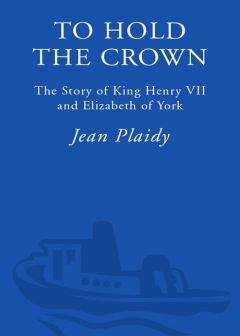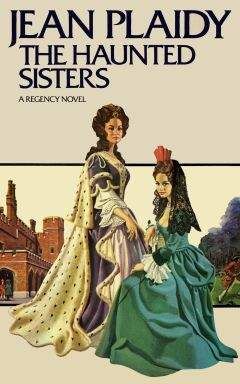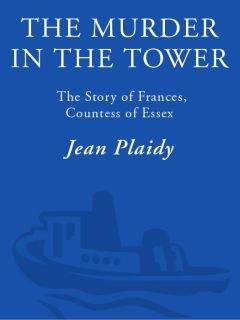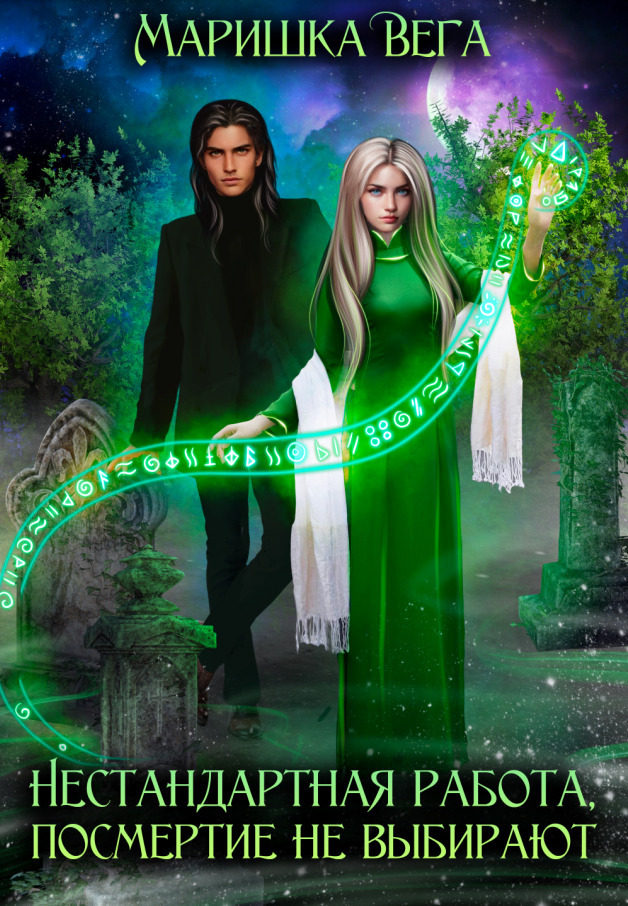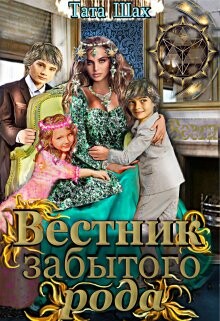Jean Plaidy - Murder Most Royal: The Story of Anne Boleyn and Catherine Howard
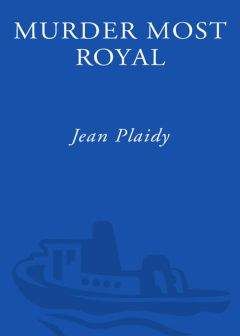
Помощь проекту
Murder Most Royal: The Story of Anne Boleyn and Catherine Howard читать книгу онлайн
Very soon after the wedding, to the delight of all, I appeared. No doubt they would have preferred a boy, but because of the status of women in Aquitaine, I was warmly welcomed.
I heard afterwards that before I was born one of the holy pilgrims came to the castle. They were always turning up like birds of ill omen. The man was understandably shocked by the situation at the castle: the abduction, the blatant living together of the unmarried pair, and the flight of the true Duchess to Fontevrault Abbey, and to follow that the marriage of the son and daughter of the guilty pair.
He stood before my poor pregnant mother and declared: “Nothing good will come of this.”
What I am wondering now is: Was the pilgrim right?
I was called Eleanor, named after my mother, for Eleanor meant “That other Anor.”
They made much of me. Like many sinners, my grandfather and grandmother were indulgent. I doubt the virtuous Philippa or the Viscount of Chtellerault would have given me so much loving attention. My mother was there in the background, gentle, rather timid, an alien in this flamboyant Court. She was devoted to me and I know did her best to counteract the effect of the spoiling. I am afraid she was not very successful in this, but I did love her dearly and she represented a steadying influence in my young life, which was certainly necessary.
When my sister Petronilla arrived, I was not quite sure of the effect she would have on my position, but very soon I was in charge of her. The elders watched me with amusement as I exerted my influence over her, and by the time she could walk she was my abject slave. She was pretty and charming, but just as my father lacked the charisma of my grandfather, so Petronilla, for all her prettiness and charm could only take second place to me.
So all was well. I was the little queen of the Court. I would sit on my grandfather’s knee and make my quaint remarks, which set his beard wagging, implying that he was amused. I was the one who received most of the sugarplums fed to us by Dangerosa.
At this time I heard someone say that the Lady Eleanor could well be the heiress of Aquitaine. That was a great revelation. Aquitaine, that beautiful county with its rivers, mountains, flowers, and vineyards, its many castles . . . all would one day be mine! I was a very contented little girl.
And then it happened. My mother had been sick for a long time. Her shape changed; she rested a good deal. There was a great fuss about what they called “her condition.” I was told: “There is going to be another little one in the nursery.”
I naturally thought of another Petronilla—someone for me to mold and direct and who would become my ardent admirer.
The great day arrived. One of the nurses came to me in great excitement.
“What do you think, my lady!” she said. “You have a little brother.”
What rejoicing there was throughout the castle. “Now we have a male heir,” they said.
My grandfather was full of glee; so were Dangerosa and my father.
It was treachery. I was the heir of Aquitaine. But it seemed that, in spite of all the songs dedicated to the glory of women, they were forgotten when a boy was born.
This was the first setback.
I sat on my grandfather’s knee and voiced my protests.
“But you see, little one, men want a leader.”
“I could lead them.”
“Sometimes we go into battle.”
“You don’t.”
“I did . . . when I was a younger man.”
Dangerosa said: “Never mind. Women have their way of ruling.”
My father tried to console me. “You will make a great marriage when the time comes.”
My mother said: “Happiness does not come with great titles, my child, but with the good life. If you marry and are a good wife, that will bring you more happiness than great estates.”
I did not believe her. I wanted to be the heiress of Aquitaine.
But no one could help loving little William Aigret. He was such a docile child, and I still ruled the nursery.
Soon after that my grandfather died and my father became the Duke of Aquitaine.
My grandfather was genuinely mourned. I spent a great deal of time with Dangerosa; she used to tell me stories about him, and it was from her I pieced together the events of his turbulent life. She loved to tell the story of her abduction and how he had come to the castle to talk business with his vassal, the Viscount of Chtellerault, and as soon as he set eyes on her all thought of business was driven from his mind. I felt I was there during those periods in the castle when they had planned their flight. I seemed to have ridden with them through the forest, she riding pillion, clinging to him as they sped away to happiness. It was very romantic. I did not spare a thought for the poor deserted Viscount and my wronged grandmother Philippa. My sympathies were with the lovers.
Philippa was dead now but in the Courts of Love, which my grandfather had created, their story would be sung for years to come.
The Court changed, of course. My father was a very different man. He was not the great lover; he was more of a fighter. At least he was constantly embroiled in some dispute with his vassals. He was quick-tempered and ready to go to war on the slightest pretext; and he was absent a good deal during the years which followed my grandfather’s death.
There were plenty of young people at the castle, for girls were sent to my mother to be brought up as the Court ladies they would eventually become. There were boys too, who must be taught the art of chivalry and horsemanship. We girls had to learn how to embroider and do delicate needlework, which was so much a part of a lady’s education; we had to sing and dance and make gracious conversation, but I was taught other things besides, such as reading and writing. I had shown such an aptitude for learning when it was thought I might be Duchess of Aquitaine that they decided I should continue. I was, therefore, apart from the other children, and I intended that none should forget it.
There was still a great deal of music in the evenings, but my father, although he loved it, was no composer. He sang well, and this he liked to do, and he enjoyed the ballads and stories about his father. But he was so often away and the character of the Court had changed from what it had been in his father’s day.
When my father came home he would want to know how we had progressed. He was very interested in William Aigret’s performance, but I fancied he had a special fondness for me.
Then one day fever struck Poitou. Several people died and there were restrictions as to who should be allowed to come into the castle.
My mother became ill and she died within a few days. That was not all. William Aigret caught the fever from her and very soon afterwards he was dead.
It was a time of great mourning. It was then that I realized how much I had cared for my mother and that William Aigret had been such a loving little boy.
It was a great loss. There were only two children now—Petronilla and myself, but I had become the heiress of Aquitaine.
Also by Jean Plaidy
Victoria Victorious
0-609-81024-3
$13.95 paperback
An unforgettable novel of Queen Victoria and the remarkable life she lived—a life of romance, triumph, and tragedy.
The Sixth Wife
0-609-81026-X
$13.95 paperback
The intriguing story of Katherine Parr, the last of Henry VIII’s six queens.
Katharine of Aragon
0-609-81025-1
$14.95 paperback
The life of Katharine of Aragon, Henry VIII’s first wife.
Royal Road to Fotheringhay
0-609-81023-5
$12.95 paperback
The haunting story of the beautiful—and tragic—Mary, Queen of Scots.
In the Shadow of the Crown
0-609-81019-7
$13.95 paperback
A dark and fascinating portrait of Mary Tudor, daughter of Henry VIII, whose long road to the throne was paved only with sorrow.
Queen of This Realm
0-609-81020-0
$14.95 paperback
An account of Elizabeth I, from motherless child of an all-powerful father to monarch who launched England into the time of its greatest glory.
The Thistle and the Rose
0-609-81022-7
$12.95 paperback
Margaret—Princess of England, but Queen of Scotland—finds herself torn between loyalty to the land of her birth and to that of her baby son, now King of the Scots.
Mary, Queen of France
0-609-81021-9
$12.95 paperback
The story of Princess Mary Tudor, a celebrated beauty and born rebel who would defy the most powerful king in Europe—her older brother, Henry VIII.
The Lady in the Tower
1-4000-4785-4
$12.95 paperback
A vivid telling of the story of Anne Boleyn, second wife of Henry VIII and mother of Elizabeth I.
The Rose Without a Thorn
0-609-81017-0
$12.95 paperback
The captivating story of young Katherine Howard, born into poverty but destined for the court of Henry VIII, where she soon catches the eye of the unhappily married king.
The Loves of Charles II
1-4000-8248-X
$14.95 paperback
The fascinating life—and loves—of England’s King Charles II.
Available from Three Rivers Press wherever books are sold
BOOKS BY JEAN PLAIDY
FROM THREE RIVERS PRESS
THE WIVES OF HENRY VIII
The Rose Without a Thorn
The Lady in the Tower
Katharine of Aragon
The Sixth Wife
THE TUDOR PRINCESSES
Mary, Queen of France
The Thistle and the Rose
THE TUDOR QUEENS
In the Shadow of the Crown
Queen of This Realm
The Royal Road to Fotheringhay
Victoria Victorious
The Loves of Charles II
THE NORMAN TRILOGY
The Bastard King
The Lion of Justice
The Passionate Enemies
THE PLANTAGENET SAGA
Plantagenet Prelude
The Revolt of the Eaglets
The Heart of the Lion
The Prince of Darkness
The Battle of the Queens
The Queen from Provence
Edward Longshanks
The Follies of the King
The Vow on the Heron
Passage to Pontefract
The Star of Lancaster
Epitaph for Three Women
Red Rose of Anjou
The Sun in Spendor
THE TUDOR NOVELS
Uneasy Lies the Head
Katharine, the Virgin Widow
The Shadow of the Pomegranate
The King’s Secret Matter
Murder Most Royal
St. Thomas’ Eve
Gay Lord Robert
The Spanish Bridegroom
THE STUART SAGA
The Captive Queen of Scots
The Murder in the Tower
The Wandering Prince
The Three Crowns
The Haunted Sisters
The Queen’s Favorites
THE GEORGIAN SAGA
The Princess of Celle
Queen in Waiting
Caroline the Queen
The Prince and the Quakeress
The Third George
Perdita’s Prince
Sweet Lass of Richmond Hill
Indiscretions of the Queen
The Regent’s Daughter
Goddess of the Green Room
Victoria in the Wings
THE QUEEN VICTORIA SERIES
The Captive of Kensington Palace
The Queen and Lord M
The Queen’s Husband
The Widow of Windsor
THE FERDINAND AND ISABELLA TRILOGY
Castille for Isabella
Spain for the Sovereigns
Daughter of Spain
THE LUCREZIA BORGIA SERIES
Madonna of the Seven Hills
Light on Lucrezia
THE MEDICI TRILOGY
Madame Serpent
The Italian Woman
Queen Jezebel
THE FRENCH REVOLUTION SERIES
Louis the Well-Beloved
Flaunting, Extravagant Queen
The Road to Compienge
Myself, My Enemy
Evergreen Gallant
The Goldsmith’s Wife
Beyond the Blue Mountains
Defenders of the Faith
The Scarlet Cloak
Daughter of Satan
Copyright 1949, 1972 by Jean Plaidy
Reader’s Guide copyright 2006 by Three Rivers Press, an imprint of the Crown Publishing Group, a division of Random House, Inc. The excerpt is from The Courts of Love, copyright 1987 by Jean Plaidy.
This is a work of fiction. Names, characters, places, and incidents either are the product of the author’s imagination or are used fictitiously.
All rights reserved.
Published in the United States by Three Rivers Press, an imprint of the Crown Publishing Group, a division of Random House, Inc., New York.
www.crownpublishing.com
THREE RIVERS PRESS and the Tugboat design are registered trademarks of Random House, Inc.
Originally published in Great Britain by Robert Hale, London, in 1949, and subsequently in the United States by G. P. Putnam’s Sons, New York, in 1973.
Library of Congress Cataloging-in-Publication Data
Plaidy, Jean, 1906–1993
Murder most royal / Jean Plaidy.
Includes reader’s guide.
1. Anne Boleyn, Queen, consort of Henry VIII, King of England, 1507–1536—Fiction. 2. Catherine Howard, Queen, consort of Henry VIII, King of England, d. 1542—Fiction. 3. Great Britain—History—Henry VIII, 1509–1547—Fiction. 4. Henry VIII, King of England, 1491–1547—Fiction. 5. Queens—Great Britain—
